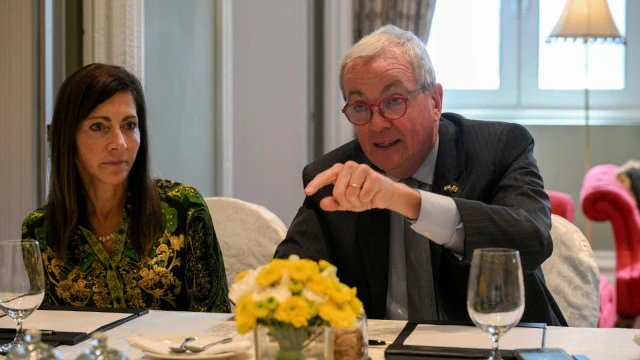New Jersey Governor Phil Murphy suggests that the India–US trade agreement might hinge on a “grand bargain” involving oil supply terms and tariff relief. Learn how energy, geopolitics, and tariffs could shape the deal.

India–US Trade Deal Could Pivot on an Oil “Grand Bargain,” According to New Jersey Governor
Context — Tariffs, Russian Oil Imports, and Growing Pressure
Recent developments in U.S.–India trade negotiations have seen tensions rise over tariffs linked to India’s continued imports of discounted Russian crude. In August, the U.S. imposed a 25 percent penalty tariff on Indian goods, elevating punitive measures to 50 percent in total, citing New Delhi’s energy purchases.
Against this backdrop, New Jersey Governor Phil Murphy—visiting India—has floated the possibility of a “landing place” in tariff talks and hinted at a “grand bargain” where oil supply terms could become central to the broader trade settlement.
What Murphy Means by a “Grand Bargain”
Murphy’s use of the phrase suggests that oil could become a key bargaining chip in the final agreement. In practical terms, this might mean:
- Supply guarantees or volume commitments: India might commit to sourcing a higher proportion of crude from the U.S.
- Preferential pricing or financing terms: U.S. exporters could offer more favorable credit, long-term contracts, or pricing mechanisms to make U.S. oil more attractive.
- Reciprocal concessions: India may obtain tariff relief or waivers in exchange for adjusting its energy import mix.
By broaching the idea publicly, Murphy signals that energy may no longer be just a background issue—it could become the linchpin that seals the deal.
Challenges, Risks, and Diplomatic Sensitivities
Turning oil into a bargaining lever is not without complications:
- India’s energy security calculus
India has defended its position of sourcing oil “from wherever it gets the best deal,” stressing flexibility in choosing suppliers based on cost and reliability. - Geopolitical balance
Any move perceived as bowing to U.S. demands to reduce Russian oil imports would carry diplomatic risks. India must juggle its strategic autonomy with external pressure. - Implementation complexity
Pricing safeguards, long-term contracts, financing mechanisms—all would require detailed negotiation. Ensuring transparency, contract enforcement, and mutual trust would be critical. - Domestic and political optics
In both countries, stakeholders (energy companies, trade lobbies, political opposition) will scrutinize any agreement. Any perception of favoritism or quid pro quo could spark backlash.
Signs We’re Moving Toward a Deal
Murphy’s optimism isn’t isolated. Other signals point toward momentum in the India–U.S. trade dialogue:
- U.S. Commerce Secretary Howard Lutnick recently stated that resolving India’s purchase of Russian oil would help “sort out” the trade agreement.
- Indian officials have described recent negotiations as “constructive,” with both sides reportedly exploring tariff adjustments.
- India’s Commerce Minister has acknowledged that U.S. energy plays will figure prominently in India’s energy security plans going forward.
These indicators suggest that energy policy and trade policy are becoming entwined in a high-stakes diplomacy.
Potential Scenarios for an Outcome
Given the dynamics, several possible outcomes could emerge:
| Scenario | Description |
|---|---|
| Oil-Anchored Tariff Relief | India agrees to phased shifts in its crude sourcing; the U.S. provides tariff rollbacks in return. |
| Energy Cooperation Package | The deal includes infrastructure or investment by U.S. firms in Indian refining, storage, or energy logistics. |
| Minimal Progress / Status Quo | If consensus fails, either side holds firm—resulting in prolonged tariffs or further escalation. |
If the grand bargain materializes, it could reshape India’s energy footprint and deepen U.S.–India commercial ties. U.S. oil firms would gain more access to the Indian market; India could secure more stable supply chains and perhaps favorable pricing or financing.
However, success would depend on navigating geopolitics, trust deficits, and detailed technicalities. Both governments will need to manage internal critics and ensure that any agreement is robust and enforceable.
The bottom line: what began as a tariff negotiation could evolve into a strategic energy pact. As Governor Murphy implied, oil may become the linchpin that transforms a tense impasse into a landmark trade accord.
READ ALSO……..Gurugram Exit 9 Crash: SUV Crashes Into Divider, 5 Dead, 1 Critical”2025














 Categories
Categories








